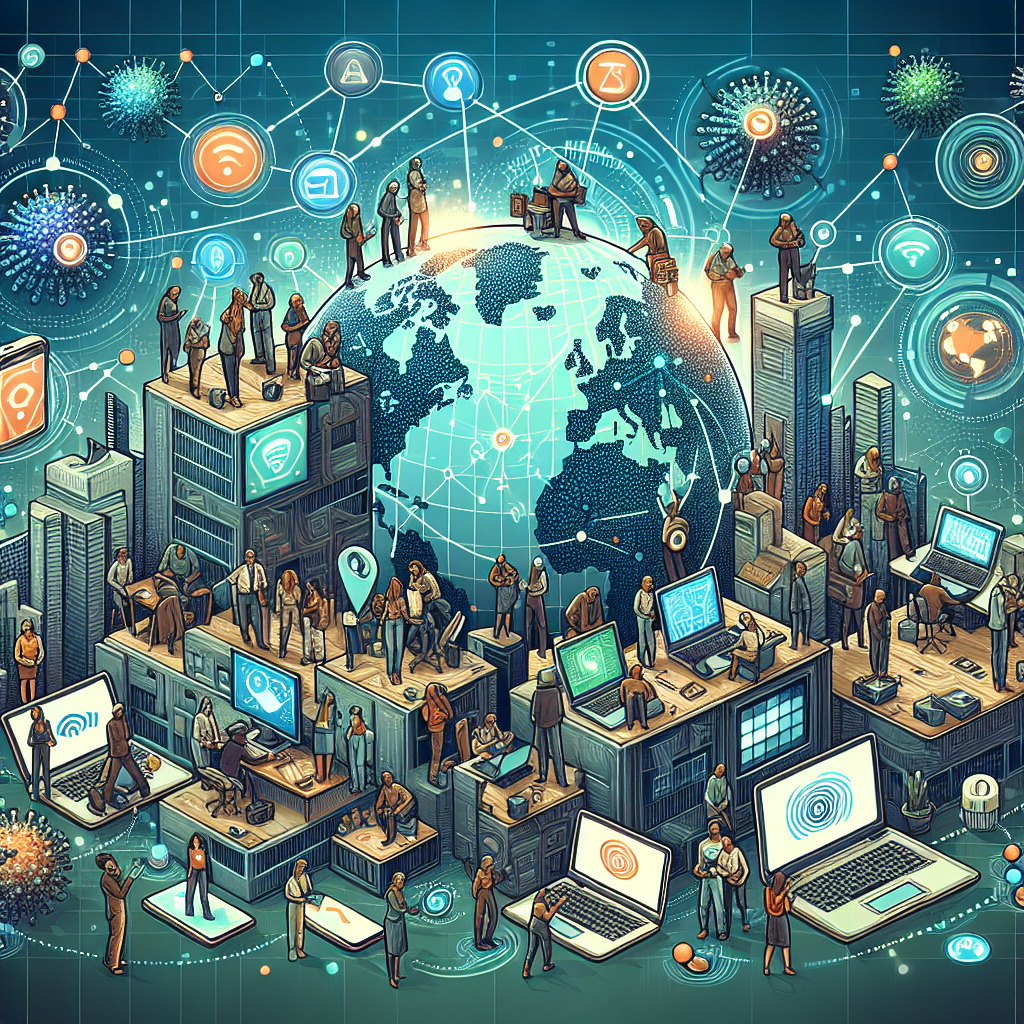Labor Market Shifts: The Rise of Remote Work and the Gig Economy
The landscape of the labor market has undergone a seismic transformation over the past decade, fueled by the twin engines of technological advancement and evolving societal expectations. The traditional nine-to-five, office-bound paradigm is increasingly giving way to a more flexible, dynamic work environment characterized by remote work and gig economy opportunities. This shift is reshaping industries, redefining work-life balance, and challenging regulatory frameworks across the globe.
The Surge of Remote Work
Remote work, once a privilege limited to a small subset of professions, has experienced exponential growth, particularly in the wake of the COVID-19 pandemic. Companies were compelled to adopt remote work solutions to ensure business continuity, leading to a massive overhaul in how people view workspaces and productivity. The technology enabling this transition—video conferencing tools, collaboration platforms, and project management software—has matured rapidly, reducing the friction previously associated with remote work.
Employees have reported numerous benefits, including flexibility, reduced commuting time, and a better work-life balance. For employers, remote work can lead to significant cost savings, with reduced overhead for office spaces and an expanded talent pool that is not geographically constrained. However, this shift also presents challenges, such as maintaining company culture, ensuring data security, and addressing employee isolation.
The Rise of the Gig Economy
Parallel to the rise of remote work is the expansion of the gig economy, where temporary, flexible jobs are commonplace, and companies hire independent contractors instead of full-time employees. Platforms like Uber, Lyft, Airbnb, and Upwork have revolutionized how people work and interact with the market. These platforms offer unprecedented flexibility, allowing workers to manage their schedules and choose the projects or gigs that best fit their skills and interests.
The gig economy is attractive to many due to its promise of autonomy and entrepreneurial spirit; however, it is not without its drawbacks. Gig workers often lack traditional employment benefits such as health insurance, paid leave, and retirement savings plans, placing them in precarious financial situations. This lack of stability has sparked debates and legislative efforts worldwide aimed at redefining worker classifications and ensuring fair compensation and benefits.
Implications for Industries and Society
The rise of remote work and the gig economy is reshaping a wide array of industries. For example, real estate markets are adapting to decreased demand for commercial office space and increased demand for home office capabilities. The retail industry is evolving with e-commerce booms, requiring robust logistics networks supported by gig workers. Moreover, corporate travel is being replaced by virtual meetings, impacting hospitality and airline sectors.
From a societal perspective, these shifts in the labor market hold profound implications for urban development, social interaction, and economic disparity. Suburbs and rural areas are becoming increasingly appealing as people untether themselves from urban office hubs, prompting shifts in local economies and infrastructure demands.
Challenges and the Future of Work
Despite the advantages, the transition to remote work and reliance on gig economies pose significant challenges. Ensuring cybersecurity in a dispersed work environment is crucial. Additionally, preserving mental health and fostering community virtually are complex yet essential.
Moving forward, businesses and policymakers must adapt to these labor market shifts. Organizations need to invest in technology and training to support remote and gig workers effectively. Meanwhile, governments must revisit labor laws and social safety nets to protect all workers adequately.
In conclusion, the rise of remote work and the gig economy heralds a new era for the labor market—one of flexibility and potential, yet fraught with challenges that require innovative solutions. Embracing these changes, while addressing their implications, will be pivotal in shaping a future that works for everyone.














Leave feedback about this
You must be logged in to post a comment.